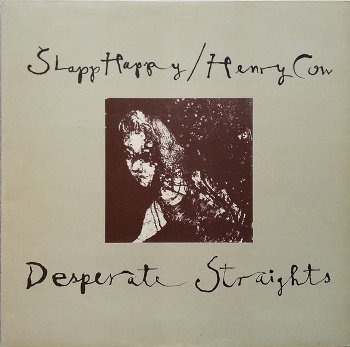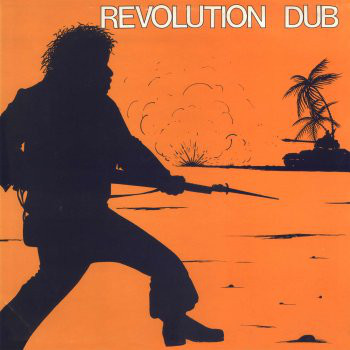[I am working on a mix for (open source) internet radio streaming. Below are notes explaining my choices. The mix is scheduled for this Thursday, Nov. 11, 8 pm Eastern on ffog's Myocyte show on tilderadio and anonradio. Please note that with the recent time change the mix is an hour earlier than it's been for the last 6 months. The official time for the mix is Nov. 12 at 0100 UTC.
Update, November 12, 2021: Thanks to all who listened and/or commented last night. The archived version of the mix in mp3 form is here.]
In the bleak mid-'70s, a time when horrible songs by Elton John and Captain & Tenniel dominated the airwaves, a mutated form of '60s pop song persisted in the college radio underground. This mix examines pop themes in the prog rock, dub, punk, and jazz rock subcultures of the '70s. Some fairly eccentric '60s songs are also sprinkled in for context. Many of these artists are now considered classic but at the time, only music nerds were listening to them.
Donovan's "Wear Your Love Like Heaven" kicks off the set, mainly to show how effortlessly it segues into a quite different song, Genesis' "Trick of the Tail." "Trick," coming from a then-arty band known for its portentous, doom-laden catalog, surprises with its catchy vibe and sprightly Brian Wilson-esque vocal harmonies. The doom isn't completely absent, however, in this concise science fiction fable of a Satyr-like humanoid from a parallel universe who is imprisoned on Earth and jeered at by people who "got no horns and got no tail." "Love Street," by The Doors, continues the keyboard pop of the first two songs and also has some odd mystical elements, particularly that "store where the creatures meet," which causes Jim Morrison to wonder, suggestively, "what they do in there."

Infectious piano (by Ray Manzarek) drives "Love Street" and the same can be said for Anthony Moore's ivory-tickling in "Apes in Capes," a joint Slapp Happy/Henry Cow project. In 1975 Dagmar Krause's warbling vocals sounded downright strange, and they still do. Another chanteuse from the skewed side of pop, Dorothy Moskowitz of the short-lived '60s art-rock outfit The United States of America, sings about "Coming Down" from an acid trip. She never "belts it out" a la Grace Slick but maintains an air of beatnik cool as she sings of Reality, which, as we know, "is only temporary."
A startlingly clear "alternate mix" of The Mothers of Invention's Freak Out has recently surfaced on the web, yielding tonight's version of "You're Probably Wondering Why I'm Here," sung by Mr. Zappa, alternating vocal chores with the late great Ray Collins. Before Zappa could afford elaborate horn charts he played a kazoo, and this is possibly the most sarcastic use of that instrument ever heard. Next up is a '60s throwback from 1978, Tina Peel's "Knocking Down Guardrails." A friend of mine was the roadie for this band and I fondly recall sitting with him on the stage at Max's Kansas City one night after all the band's instruments had been packed up. (I also once visited Tina Peel frontman Rudi Protrudi in his Alphabet City apartment.) The same year, Tuxedomoon released "New Machine," which didn't look back to the '60s but rather forward to the '80s, with its beatbox, synths, and anguished vocals from Winston Tong. A trace of the former decade can still be heard, however, in Michael Belfer's unabashedly psychedelic guitar wails.
Next we hear an improbable (but smooth) transition to Curved Air's "Not Quite the Same," a song about masturbation sung with impeccable English reserve by Sonja Kristina Linwood, over a tight arrangement of trumpets, trombones, violin and VCS3 synth. Although keyboardist Francis Monkman didn't write the song (that was Linwood and violinist Darryl Way), a similar eclectic style can be heard in Monkman's later soundtrack for the film The Long Good Friday. Then, DC art rock band Grits takes us "Back to the Suburbs," in a Zappa-esque plea for regression to babysitters, bowling alleys, and other markers of a safe childhood in the burbs, after the singer finds it too much of "a strain to be alive and so neurotic." Infantile regression can also be heard in Zappa's own "Let Me Take You to the Beach," expressing a simple desire for a weekend weenie-roast, made to seem ironic only because everything Zappa writes is sarcastic.

Kevin Ayers' evocation of a romantic Paris sidewalk cafe, "May I?," complete with accordion and street sounds, nowadays could be instantly summed up with the words "trigger warning." Nevertheless, Ayers' perambulating bass and Lol Coxhill's ethereal sax perhaps succeed in charming us more than the dated come-on in the lyrics. Meanwhile, Can's Damo Suzuki is having none of it with "Don't Turn the Light On, Leave Me Alone," a melange of gypsy-caravan ambience and rock jam, propelled by Jaki Liebezeit's always-seductive drumming. The spirit of collage continues with Lee Perry's "Doctor on the Go," a slinky reggae beat layered atop a British sitcom that blares tinnily from a TV monitor (or so it sounds). Then it's back to the '60s with Rajput & The Sepoy Mutiny's amazing, struggling sitar rendition of "Up, Up & Away." This gem languished in obscurity in the US until its inclusion in Re/Search's 1993 anthology Incredibly Strange Music, Vol I.
"That's Ramsey F---ing Lewis, right there," announced l0de AKA Zak ZYZ on his YouTube radio show, as he listened to "Cry Baby Cry," an over-the-top lounge-jazz version of John Lennon's song. "Lounge" then had its avant garde apotheosis 10 years post-Lewis with Gary Wilson's cult LP You Think You Really Know Me, from whence comes the next tune, "You Were Too Good To Be True," a winsome, slap-bassed instrumental. Quentin Tarantino already rediscovered the penultimate track, George Baker Selection's "Little Green Bag," and used it in the "cool gangsters walking" intro of Reservoir Dogs. And lastly comes The Modern Lovers' "Old World," from the period before Jonathan Richman went full-blown twee, included here for the organ work by soon-to-be-Talking-Head Jerry Harrison, as well as the involvement of '60s-turned-'70s-trailblazer, John Cale, who produced this track.
Playlist
0:00 Donovan, 7 inch, Wear Your Love Like Heaven (1967)
2:20 Genesis, A Trick of the Tail, A Trick of the Tail (1976)
6:40 The Doors, Waiting for the Sun, Love Street (1968)
9:24 Slapp Happy/Henry Cow, Desperate Straights, Apes in Capes (1975)
11:32 The United States of America, The United States of America, Coming Down (1968)
14:09 The Mothers of Invention, Freak Out, You're Probably Wondering Why I'm Here (1966)
17:44 Tina Peel, :30 Over D.C.~~Here Comes The New Wave!, Knocking Down Guardrails (1978)
19:15 Tuxedomoon, No Tears EP, New Machine (1978)
23:33 Curved Air, Phantasmagoria, Not Quite the Same (1972)
27:17 Grits, As the World Grits, Back to the Suburbs (mid-'70s, released 1993)
31:23 Frank Zappa, Studio Tan, Let Me Take You to the Beach (1978)
34:06 Kevin Ayers and The Whole World, Shooting at the Moon, May I? (1970)
37:56 Can, Soundtracks, Don't Turn the Light On, Leave Me Alone (1970)
41:34 Lee Perry & The Upsetters, Revolution Dub, Doctor on the Go (1975)
45:24 Rajput & The Sepoy Mutiny, Flower Power Sitar, Up, Up & Away (1968)
47:35 Ramsey Lewis, Mother Nature's Son, Cry Baby Cry (1968)
50:50 Gary Wilson, You Think You Really Know Me, You Were Too Good To Be True (1977)
52:45 George Baker Selection, 7 inch, Little Green Bag (1969)
55:58 The Modern Lovers, The Modern Lovers, Old World (1976)
